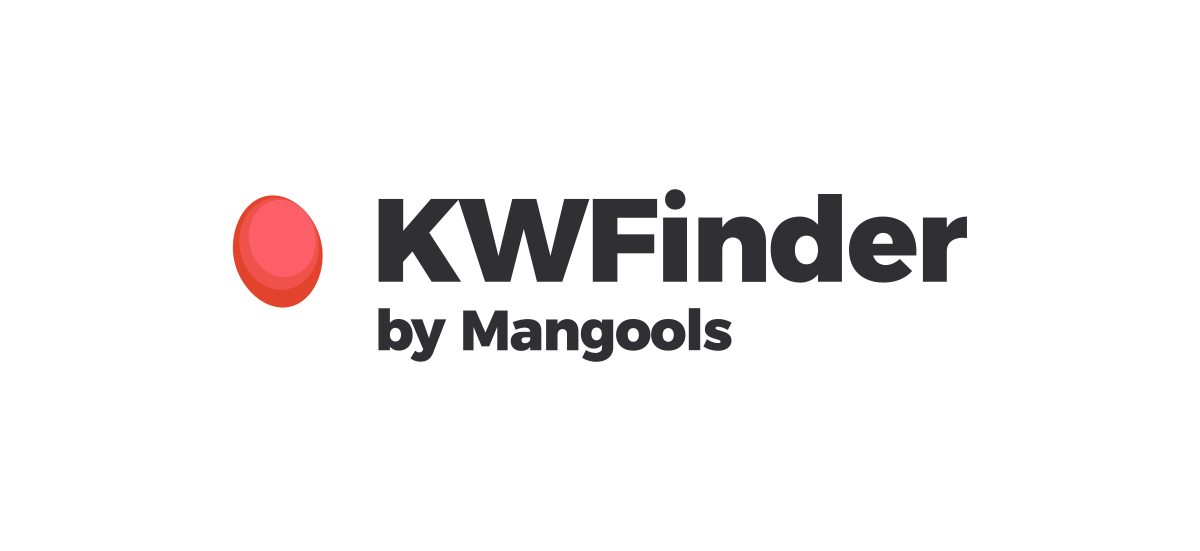Creating a well-ranked website is a lengthy process that starts with your keyword definition and research. What a chance! We will focus on this point right now.
Let’s start!
Keyword research: how to proceed?
First, you must exactly define your research: as its name doesn’t suggest, in general, a keyword hasn’t a single word, but several words.
It would thus be more appropriate to talk about key terms.
A keyword or key term refers to the query Internet users do on search engines.
There are many ways to search keywords.
Here are our favourite online and offline ways.
Being inspired by your daily life
The most natural reflex to define your keywords is using your intuition.
It’s a good reflex!
Your thought sometimes brings you new ideas in comparison with your direct competitors, but it is possible that you don’t finally progress anymore.
To be ready for every eventuality, you can ask your relations to list words and expressions about your business sector to have keywords that are naturally used by the Internet users who don’t necessarily know technical vocabulary.
For example:
If you explain
website creation to beginners, it seems judicious to tell the meaning of “SEO”.
Finally, you can instinctively make a list. Keep a list with all the considered keywords up-to-date, and make it available from any device. Any device can host your list (memo on your phone or Google Docs) and enables you to update it in a few seconds.
Thus, when you think about a new word, you will be able to add it directly, so you don’t forget it!

Using the Internet to find keywords
Before discovering special tools, you are better starting searching keywords on additional websites according to these 3 essential elements:
-
search engines,
-
your target audience,
- your competitors.
➡️ Using search engines to define your keywords
On the Internet, your first reflex will be putting yourself in your visitor’s place and trying to think like them.
To that end, you just need to use the autocomplete feature within Google Search and the related searches to define different relevant and synonymous keywords.
How to proceed exactly? Go to Google’s homepage. Then enter an essential keyword of your business sector into the search bar and analyse the suggestions.
You will find the related searches at the end of Google’s search engine results pages: there are the long-tail queries that may be interesting for the keywords of your sector.
Don’t worry! We will explain everything about long tail to you.
However, you won’t have many queries: 4 or 5 queries for a word. Therefore, think about other search engines’ autocomplete tools to make your searches complete.
Youtube is the second most popular search engine after Google, and it is a goldmine which is less exploited to find keywords.

➡️ Searching your keywords: observing the competitors
Watching the neighbour’s actions is a human behaviour which is also very useful in business.
Are you looking for keywords for your website? Go see your competitors’ keywords.
To that end, you have several options:
In this way, you will be able to see their keywords, alt tags, structure as well as page level and draw conclusions.
💡 To view source code on a website, just right-click on the website and choose “View Page Source”.
Go to the main online stores like Ebay or Amazon to see which keywords are related to the products you sell.
Google keywords: always listening to your target audience
Your target audience plays a large part in your SEO on the Internet.
Thus, they’ll certainly give you the most relevant information to enhance your website SEO.
How to get statistics about them?
There are many possibilities:
-
the FAQ or forums about your business sector,
-
the customer reviews,
-
the comments,
-
the questions asked by them,
-
the surveys on social media…

If your website has a search bar, you must precisely analyse the entered queries.
By using data collected from the users’ messages and queries, you will know more about their interactions with your website and the terms they use.
As you will have understood, keyword research is a long-term job.
Fortunately, there are several high-performance and effective tools to make work easier.
Are you ready to know all these tools?
On the Internet, you will find many free tools, but you will also have to pay to search the appropriate keywords. Google and other search engines offer you some tools.
-
Google Adwords / Keyword planner
It is a free keyword generator tool to help you build your Google SEO strategy. Like all the Google tools, it’s very reliable as it’s based on the users’ queries, and it’s available with just a Google account.

This tool is a direct competitor, other well-known online service that will help you find keywords using one or several words. Ubersuggest is a free Chrome extension you can use rapidly.

KWfinder is very similar to UberSuggest, but it offers an interesting feasibility index. If your keyword gets a green rating on this platform, you are likely to rank on the first page with this term.
🤑 However, even if you enjoy a 10-day trial period, you must pay from €29 to €79 for KWfinder licences.

It’s a well-known SEO tool to analyse Google natural SEO and sponsored links. Moreover, this tool enables you to get many statistics on your website; that’s why its price is higher.
🤑 The most affordable plan costs €119 per month.

This tool provides a free online service to search keywords per country and business sector. It is very useful if you target several markets, but it is limited as you will have to give your email address to receive the comprehensive list of keywords.

SpyFu is a free online service that gives you the possibility to view the keywords used by your competitors (in terms of natural SEO and Google Ads campaigns). However, watch out for these practices: being inspired by the competition is essential, but don’t copy the content. These tools are additional helps to improve your strategy.

This tool is based on the same principle and enables you to create tag clouds and view them concretely. Word size changes according to their importance. It’s also an appropriate tool to study competition by creating tag clouds using the content of the competitors. You get a more visual and playful analysis.

It’s a major tool for long-tail keywords that offers you the best keywords from entered terms based on Google Search, Amazon and Youtube statistics. In conclusion, it will save you time.
🤑 Its only drawback is that you have to pay to use Keyword Tool Dominator, even if the free version will enable you to research up to three times a week.

Choosing your keywords to enhance your Google SEO
Made it! You have many keywords…
Now, which keywords would you like to choose? What are the best keywords to optimize your Google SEO?
To that end, you must consider two elements: the keyword potential and feasibility. To clear things up, here are some elements to check if that your selection is relevant, effective and promising.
Requirements for the perfect keyword
Ideally, the perfect keyword should fulfil these 4 requirements:
-
It must match a high search volume: many Internet users must enter these keywords.
-
The keyword must have an important CPC (cost per click): banking on this keyword is interesting for your competitors.
-
This term must be few competitive.
-
Regarding SEO, it must have a high feasibility.
However, perfection doesn’t exist or is a rare sight. In reality, it will be difficult to meet all these requirements.
First bank on a relevant keyword for your sector, with an appropriate search volume (between 500 and 3 000 queries), a high CPC and limited competition.
The good keyword length
Regarding term length, it would be better to try combining them. The terms between 11 and 25 characters represent 60% of the queries, but the terms between 26 and 40 characters generate more clicks.
Changing keywords
Google indeed is increasingly highlighting natural contents, especially user content.
Therefore, don’t copy texts: search engines are for optimizing quality content and ignore deliberately plagiarism. Moreover, when you write for the Web and to optimize your Google SEO, don’t add too many keywords artificially because Google penalizes it.
Therefore, when you choose your keywords, ensure that term variety and artificial repetition are well-balanced.
Using long tail
As seen previously, it is useful to start your SEO strategy, first, by analysing long-tail keywords. Then it will be possible to use the most competitive keywords, when your website ranks on the first page of search engines.
Long tail is all the combinations of keywords that make less traffic on a specific topic, but represent some volume after combination
Change term combinations and ensure that you find synonyms to supply this long tail. In this way, you ensure quality traffic and a lasting brand image that will be useful for your SEO.
You’ve searched, found and chosen your keywords, but how to use them?
Optimizing your SEO with keywords: how to place them judiciously?
These keywords indeed are useful for your SEO and must be suitably used to be totally effective.
Let’s see where to add keywords to your website and in the middle of your contents:
First step: your page URL.
Your page URL (based on your page name) is important: you must choose a relevant, short and custom URL related to the topic of your page. It must have keywords. To have relevant page URL, try to have pages that deal with single subjects as well as a well-structured website.
Then add your URL to metadata for search engines. Add synonyms of your keywords to intertitles, make a list with bullet points, figures and indentations to get a well-structured text and make interpretation easier for robots for your Google SEO.
Keywords in your content
Your keywords must be place in the warm areas of the pages.
They must be well-placed and are essential in your titles, subtitles, at the beginning of your introduction if it’s possible.
Moreover, add your keywords to links. These links must have terms related to the target page.
However, don’t add too many links. Your Google SEO shall be subject to penalities because keyword stuffing is like spamming for search engines.
Then add italic or bold keywords to your text. In this way, structure the content and make reading easier for Google, so it can perfectly understand the topic of your article and make it rank high.
Keywords on your images
Finally, add your keywords to the image descriptions and the name of the image files.
Remember that images are less competitive than texts, so you will rank high on search engines more easily.
Don’t add too many keywords: about one keyword every 100 words. Your keyword density score, that is to say the number of keywords of a page divided by the total number, must be situated between 2.5% and 5.5%.
Now you know almost everything about keywords and Google SEO.
Here is the last tip to implement a feasible keyword strategy: anticipation.
Web SEO and keywords: being on the alert
As a webmaster who is implementing their SEO strategy, you will ensure that you always keep attentive and be aware of the news about SEO.
Be that as it may, you must first be informed!
However, a wide analysis may take time and be counterproductive.
Fortunately, Google Trends enables you to analyse the evolution of the search terms of your business sector comprehensively and regularly.
You can actually compare up to 5 terms and have a graphical representation of search volumes, the list of the usual and improving terms and their using sharing out in the form of geographical map.

To summarize, you can anticipate content creation because its optimization may be longer than expected. In general, 4 or 5 weeks are necessary to get the best Google SEO after content publication.
Thus, take this period into consideration to publish your events.
In general, always find out about users’ tendencies and habits as well as Google updates to get a coherent, adapted and effective strategy.
NB: If the process seems too difficult for you or if you have short time, you can ask a SEO expert to help you.
They will audit your website and analyse your pages totally to establish a professional-quality SEO strategy.
By following these steps, you will rank high on Google and other search engines.
Thanks to the appropriate, relevant and strategically placed keywords, you will achieve the Grail: the first page of search engines! 🏆












